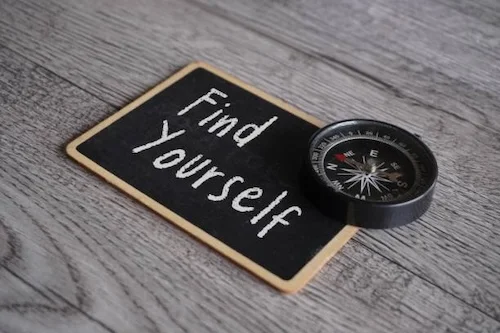Before you read another word, let’s get real. Answer these questions honestly:
- When you see someone else’s success on social media, do you immediately feel a knot in your stomach?
- Have you ever unfollowed someone because their posts made you feel inadequate?
- Do you find yourself thinking “must be nice” when friends share good news?
- Have you caught yourself minimizing others’ achievements (“Well, they had help…” or “They got lucky…”)?
- Do you feel exhausted after scrolling through LinkedIn or Instagram?
If you answered yes to even a single one of these questions, welcome to the club. The human club – a special place where we all secretly struggle with envy while acting as though we’re above such “petty” emotions.
Now, let’s flip that script.
That uncomfortable twist in your gut when you see someone else thriving? It’s actually one of the best guidance systems you have. The reality is that you just haven’t learned how to read the signals and use them properly.
Since birth, we’ve been taught to stuff envy down. At best, we’re told we should be ashamed of it or move beyond the feeling before anyone (including ourselves) notices.
But what if that’s backwards? What if envy – when approached with curiosity instead of judgment – could become your most trusted advisor?
The Truth About Envy We Don’t Want to Admit
Everyone feels envy. That includes your zen yoga teacher and even your therapist. Even the people you envy feel envy.
But somewhere along the way, we decided envy was the emotion that shall not be named. We’ve become much better at openly discussing our anxiety and sharing our struggles with depression.
But envy? That stays locked away.
Envy and jealousy aren’t the same thing, though we use them interchangeably.
Jealousy is about protecting what you have. It’s that feeling of being threatened that someone might take your partner, your position, your place.
Envy is about wanting what someone else has. In scriptures, it’s called coveting – wanting something someone else has out of a sense of scarcity or loss.
Put a different way:
- Jealousy says, “I’m afraid of losing.”
- Envy says, “I’m aware of lacking.”
Why We’ve Been Programmed to Suppress
From childhood, we’re taught that envy is “bad.” Ever heard these rules of life?
“Good people don’t feel envious.”
“Nice girls don’t compare.”
“Strong men don’t covet.”
Our mental health education usually lumps envy with the “negative emotions” we should overcome, manage, or eliminate.
But here’s what happens when you try to suppress any emotion: It doesn’t disappear. It goes underground, shape-shifting into chronic comparison that erodes self-worth.
It can manifest as passive-aggressive behavior toward those we envy, or even self-sabotage to avoid triggering others’ envy.
The cost of denying envy is enormous. We miss its messages. We forfeit its wisdom. We turn a potential compass into a weapon we use against ourselves.
The Hidden Gift Inside the “Ugly” Emotion
What if, instead of proof we’re petty or small, envy is actually evidence that we’re alive? That we still have desires and dreams that give us hope for our own potential?
Sure, traditional mental health curriculum rarely teaches this, but envy only shows up when something matters to us. You don’t envy what you don’t care about. You don’t feel that twist when you see someone excelling at something that holds no meaning for you.
This is where social emotional learning needs an upgrade. Instead of teaching kids (and adults) to suppress envy, what if we taught them to decode it?
Can Envy Become Your Internal GPS System?
Think about your phone’s GPS. It can’t guide you anywhere until it knows two things: where you are and where you want to go.
Envy works the same way. It pinpoints exactly where you feel you are (lacking) and where you want to be (what others have).
But unlike your phone’s GPS, which speaks in clear directions, envy speaks in emotions. Learning to translate those feelings into useful information is a skill, and it’s one that should be part of every mental health platform and educational approach.
The Neuroscience of “Noticing”
Your brain is wired to notice gaps between what you have and what you want. This isn’t a bug; it’s a feature.
From an evolutionary perspective, noticing what others have that you lack helped our ancestors identify resources and opportunities for survival.
Today, we often see that same mechanism fire when you see:
- A colleague’s promotion announcement
- A friend’s engagement photos
- An influencer’s morning routine
- A peer’s creative output
Your brain flags these as “important information about potential resources.” The emotional charge is your system saying, “Pay attention! This matters to you!”
But not all envy is created equal. Each type points to different unmet needs or unexpressed desires:
Career/Achievement Envy
- What you notice: Someone’s professional success, recognition, or opportunities
- What it reveals: Your own ambitions, perhaps ones you’ve been afraid to admit
- The invitation: What specific aspect of their achievement calls to you? The freedom? The impact? The validation?
Lifestyle Envy
- What you notice: Someone’s daily routine, living situation, or life design
- What it reveals: Values misalignment in your current life
- The invitation: Which elements could you begin incorporating now, even in small ways?
Relationship Envy
- What you notice: Someone’s partnership, friendships, or community
- What it reveals: Your deep need for connection and belonging
- The invitation: Where can you invest more intentionally in relationships?
Creative Envy
- What you notice: Someone’s artistic output, expression, or creative courage
- What it reveals: Your own unexpressed creativity begging for attention
- The invitation: What would you create if you knew no one was watching?
This is what is social emotional learning at its finest. When we can start using our emotional responses as data rather than obstacles, we can begin to see envy as an internal GPS “beep” that tells us to notice and turn in the right direction.
The Sacred Specificity of Your Envy
Did you know that your envy is as unique as your fingerprint?
The reason you feel it reveals something you deeply value or desire.
Ten people can look at the same successful person and feel envy about ten completely different things. One envies their confidence. Another, their discipline. Someone else sees their creative freedom.
This specificity is sacred. It’s your psyche highlighting exactly what wants to emerge in your own life. Many programs focused on mental health education in schools miss this entirely, teaching students to feel ashamed of comparison rather than curious about what comparison reveals.
The question isn’t “How do I stop feeling envious?”
The question should be, “What is my envy trying to tell me about my own unlived life?”
When we shift from suppression to investigation, envy transforms from a source of shame into a source of clarity. And that’s incredibly powerful.
From Toxic Comparison to Sacred Information
So, how do we actually use this information instead of letting it use us? First, we need to understand the two faces of envy.
Researchers have identified two types of envy, and only one leads to anything good:
Malicious envy says, “It’s not fair they have that. They don’t deserve it. I hope they fail.”
Benign envy says, “Wow, they have something I want. How can I get there too?”
One tears others down. The other builds you up.
We see this in social media all the time. Our online world has turned malicious envy into an art form. We can spiral from admiration to bitter comparison in seconds. But here’s the thing—you get to choose which type of envy you feed.
Do An Envy Audit to Reposition Yourself
One of the best ways to rewire yourself is with consistent self-work that reframes your thoughts and redirects your focus. Here’s a simple but powerful exercise that should be part of every mental health curriculum:
Step 1: Notice Without Judgment
When envy hits, pause. Don’t scroll faster. Don’t minimize their success.
Instead, just take the time to notice the real emotion: “I’m feeling envious right now.”
Step 2: Get Specific
Once you’ve slowed down and noticed the feeling, ask yourself a few questions:
- Who triggered this feeling?
- What exactly am I envious of?
- Is it their achievement, their confidence, their freedom, their community?
Step 3: Dig Deeper
This is where the magic happens. Dig a bit deeper into those questions to see if you can pull out a nugget or two of what’s really going on under the surface:
- What does this tell me about what I want?
- What part of me is asking to be expressed?
- What am I ready to claim in my own life?
Step 4: Find Your Version
You don’t want their exact life. You want your version of what they represent. What would that look like? The audit shows you’re craving freedom, so what does your version of that look like? Maybe it’s more flexibility in your work schedule or the ability to travel more often.
From Envy to Energy
Here’s what most people miss: Envy is energy. It’s an emotion that can work as a life force, showing you where you’re playing small. Every pang of envy is your potential knocking, saying, “Hey, remember me?”
But transformation requires more than insight. It requires community. This is where a true mental health platform differs from just scrolling social media alone with your feelings.
When you share your envy in safe spaces (whether that’s therapy or a growth-minded community), something shifts. The shame dissolves. The clarity emerges. The path forward reveals itself.
Here’s an expanded version of “Building Your Envy Practice”:
Building Your Envy Practice
It sounds counterintuitive, but building your own envy practice can help you get the most out of this very real emotion. But like any skill, using envy constructively takes practice. Here are a few tips:
Keep an Envy Journal
Want to start seeing how your emotions are really driving your life? Keep a simple log that will help you reflect on the things that are triggering your envy – and what you might be able to do to make a change. It can be as simple as a few bullets each day:
- Date
- Who/what triggered envy?
- What specifically did you envy?
- What does this reveal about your desires?
- What is one small action you can take?
Notice which platforms trigger the most envy. LinkedIn? Instagram? Family gatherings? This data reveals where you’re most vulnerable to comparison and where you might need stronger boundaries.
The 24-Hour Rule
Sometimes, emotions get stronger than we’d like to admit. But that’s okay. When intense envy hits, give yourself 24 hours before reacting.
Don’t unfollow in anger. Don’t send that passive-aggressive text. And definitely don’t spiral into self-criticism.
Instead, write it out (in your Envy Journal!): “I’m so envious of X because Y.” Then sleep on it.
Tomorrow, that raw emotion will have transformed into useful information. This pause is what social emotional learning looks like in practice.
Find Your Envy Buddy
The best practices are shared with like-minded, growth-positive friends. So why not share this practice with someone you trust? Check in weekly: “Here’s what triggered my envy this week and what I learned.”
This does two things: It normalizes envy and creates accountability for acting on the insights.
Choose your buddy wisely. You want someone who won’t judge your envy and can share their own without shame. Find someone who can lovingly call you out when you are spiraling, and can celebrate you when you take positive steps.
The Monthly Envy Review
At the end of each month, look back at your envy patterns. Ask:
- What themes keep appearing?
- Which envies have I acted on?
- Which ones keep returning because I’m ignoring the message?
- What’s one bigger step I can take based on these patterns?
This is how you turn random emotional reactions into a real compass that can lead you in new directions. But you need that map of where you’ve been to create a new path forward.
Your Envy, Your Compass, Your Choice
What changes when you befriend your envy?
You stop wasting energy pretending you don’t want things. You start creating a life that fits you. You turn from a bitter observer to an inspired participant in life.
Most importantly? You realize that everyone you envy started exactly where you are: wanting something they didn’t yet have. The only difference is that they listened to their wanting and let that envy guide them forward.
Are you ready to step into the potential ahead of you? The next time envy knocks, don’t hide. Open the door and listen to what it has to tell you.
Because that uncomfortable feeling isn’t your enemy. It’s your compass, pointing you toward the life you’re meant to live.
Join AlignUs today and discover what happens when you stop hiding from your emotions and start learning from them instead. Our growing online community demonstrates the power of active change when we come together.
So why wait any longer? Let’s start the journey towards your best self!




